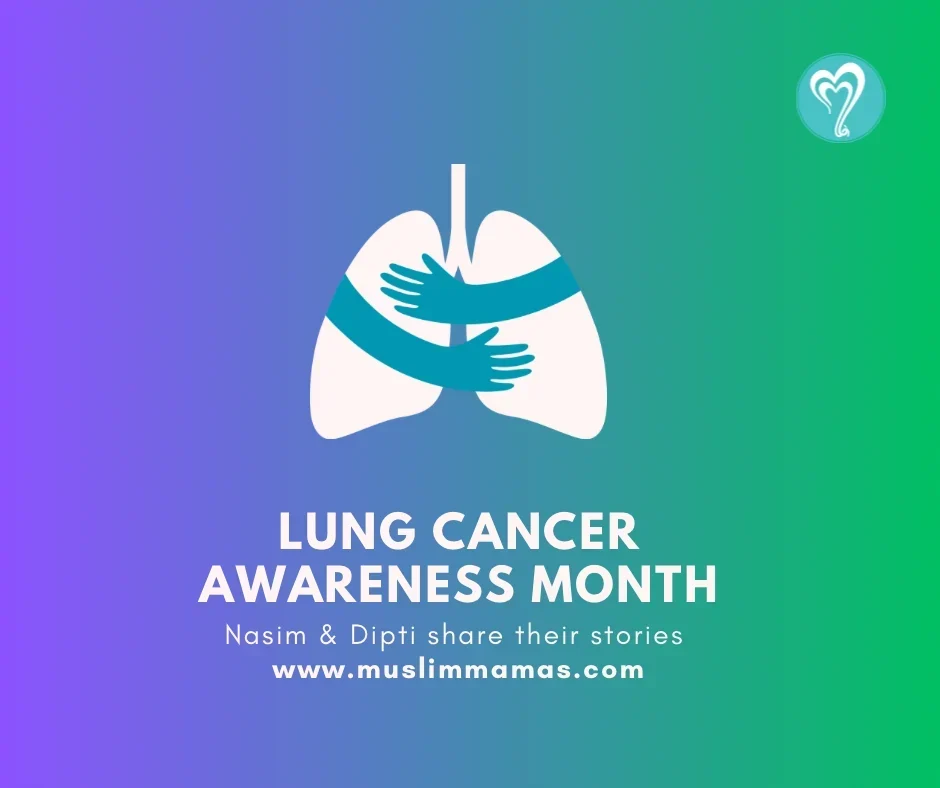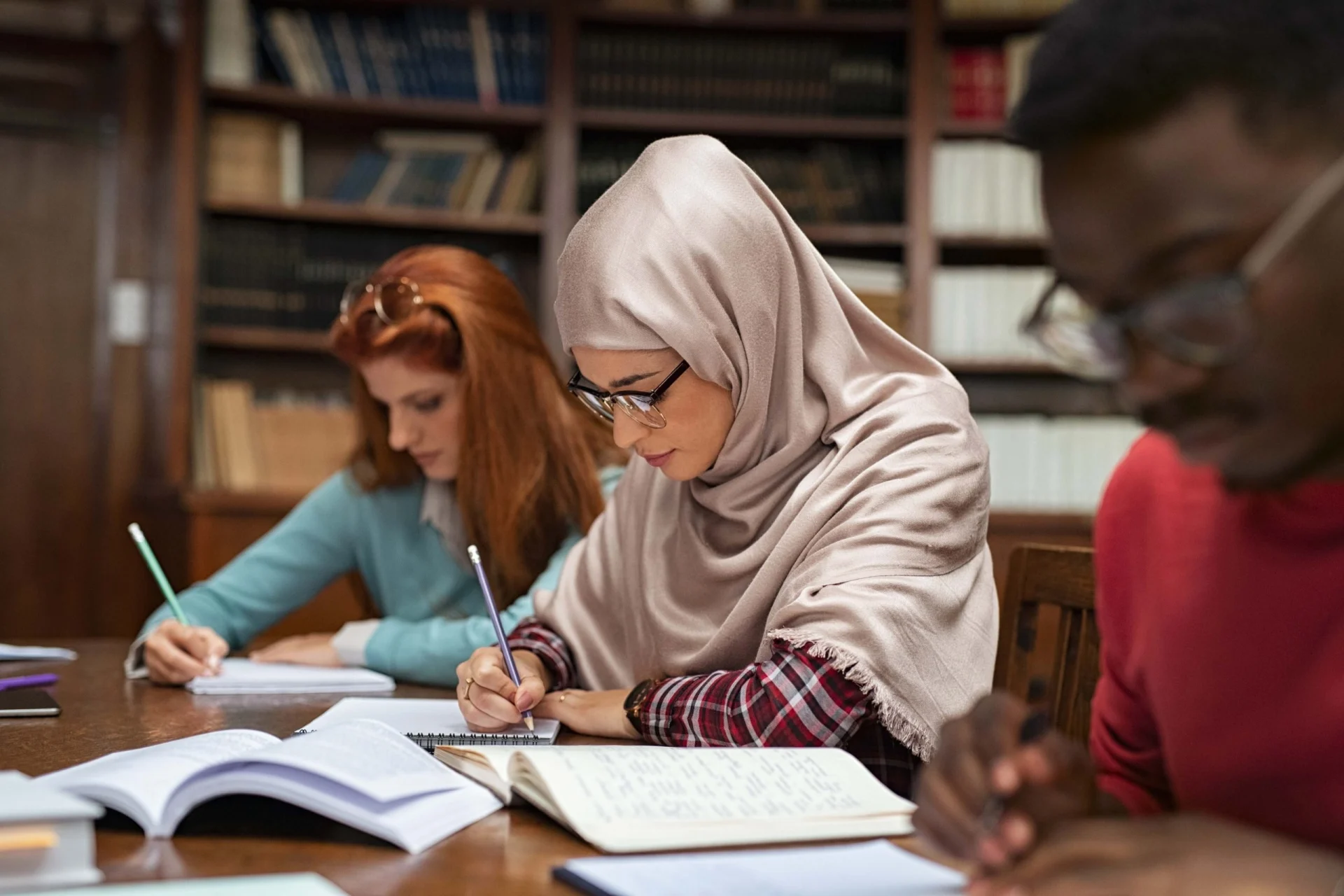With the Name of God, All-Merciful, Most Merciful
All Praise is due to God. May God bless all His Noble Prophets and Messengers, especially our Prophet Muhammad, Seal of the Prophets. May God bless all of humanity with the blessings of Ramadan, especially during the current, global crisis caused by the Covid-19 disease.
Disclaimer: The subject-matter and contents of this article are intended for a mature audience only, discussing sex within the context of marriage. Reader discretion is advised. The questions received from Muslim Mamas are in a heterosexual content. May Allah guide us to what is good and true.
“They are a garment for you and you are a garment for them” [Quran 2:187]
This consultation addresses a series of questions that our mamas ask frequently on the Muslim Mamas facebook group https://www.facebook.com/groups/muslimmums. It was originally created as a digital ebook with a forward by a renowned member of Muslim Mamas, Nabila Fowles-Guitierrez:
“All Praises to the One who brings life to mankind, the universe, Master of the seen and the unseen. The One who illuminates darkness and guides with His knowledge and infinite wisdom. The Most Merciful, the Most Kind.
I was asked by founders of Muslim Mamas to create a live Q&A session about intimacy in Ramadan. As a midwife, one of my most important roles is in educating individuals and the community. It has been an honour and privilege to be asked to contribute to the live Q&A session, which can be viewed here with our respected scholar, Dr. Amra Bone and contributions from our respected scholar, Dr. Halima Krausen.
In my work as a midwife, a divorce coach and working with families over the last 20 years, I have seen an increase in relationship breakdown in our community. Whilst I am often called to firefight once the problems have become irrevocable, I have often thought if we could help couples earlier to develop a more connected, beautiful bond, some of these relationships could perhaps be given the support in the name of prevention rather than a cure.
My observation of successful relationships, be it a maternal-child, husband-wife, friend-to-friend, is the strength of attachment. When this mysterious, (part physiological/hormonal, part emotional, part spiritual) bond is nurtured and supported, magical unions are founded. None more intense than the romantic sexual union in marriage. Of course, although even the best of relationships are tested, strong attachments help build resilience that can assist in withstanding these tests. There is so much more I would like to say, inshAllah, but I will leave my thoughts for another occasion. For now, I hand you over to the wisdom of our beloved scholars: Dr Amra Bone and Dr Halima Krausen.
Thank you to Dr. Amra Bone, for giving your beautiful advice on our live Q&A session on 22nd April 2020 – view it here https://youtu.be/A8V6pleXLto – with such a sublime manner and open heart. Thank you Dr. Halima for taking time out from your busy schedule to put together your words of wisdom and guidance, despite being in the middle of a house move! May Allah reward you all abundantly for your kindness and generosity during this Holy Month, especially during “Lockdown”. Your guidance will help thousands of us to have greater clarity on the issue of intimacy in Ramadan. JazakAllahu khayrun!”
Okay, so on to the questions – we should note here that you may think, what? How is sex or intimacy a focus in Ramadan when we are supposed to focus on the worship of God? To that we remind you of the famous hadith that lawful sexual activity is itself a type of worship (Muslim). We pray that this Q&A will help you gain clarity and enable you better enjoy the blessing of a beautiful intimate relationship, ameen.
Dr. and Shaykha Halima is a Muslim theologian who is involved in interreligious dialogue. From 1984 to 1988 she worked on a German translation of the Koran. In 1996 she succeeded Imam Mehdi Razvi as head of the German-speaking Muslim community in Hamburg; she held the office of imamim until 2014. She also has Shaykha status.
Question 1: Which affectionate acts between husband and wife are permissible during Ramadan, and which ones break the fast? (Kissing, fondling, open mouth kissing, dry humping…)
Dr. Halima Krausen: This question cannot be answered with a simple list of do’s and don’ts but is rather one of self-control and experience that may well be answered differently for different couples. In principle, the fast is broken by penetration or by an orgasm. I would, therefore, advise against anything that implies a risk for reaching a “point of no return” or having to stop at a point that leaves one’s minds occupied with frustration. This might mean that an young couple newly in love and not yet very familiar with their physical reactions would be wise to avoid most touches and kisses with a sexual connotation while an older, experienced couple can take more liberties without running such a risk.
One reason behind my suggestion lies in two apparently contradictory hadith texts in Sahih al-Bukhari in each of which the Prophet pbuh is asked by a man if he may kiss his wife while fasting. In one case, he prohibits it, and in the other one, he allows it. The explanation that is given in yet another tradition is that it was a young man in the first and an older man in the second case. I would then, by analogy, apply that to other possibly stimulating actions of a couple.
Another reason is what I understand as the overall meaning of Ramadan fasting: “that you may become mindful” (Surah 2:183). This implies a number of things including attention to when and what you eat, the practice of self-control, the awareness of one’s fellow human beings’ needs and the readiness to help them, and a heightened sensitivity to the message of the Qur’an. Strong sexual arousal and frustration may not be compatible with such attention and is to be avoided.
Sexual activities are, of course, permitted during Ramadan nights.
Note: avoid these activities as much as possible during the day, and if you do indulge in it, be very careful that you don’t lose control and break your fast.
Question 2: What does Islam say about the importance of female sexual pleasure?
Dr. Halima Krausen: In principle, the Islamic primary sources (Qur’an and Sunnah) have a positive attitude to sexual pleasure within the framework of a responsible relationship and do not make a difference between men and women there. In later scholarly literature, for example in Al-Ghazali’s Book of Marriage, sexual pleasure is often described as a temporary foretaste of the pleasure of the Garden and one of the meanings of marriage. However, there are strong indications for some consciousness of the fact that, while it is equally important, it works differently for men and for women. Therefore, men are advised to take their time for foreplay, different kinds of kissing and fondling being described as meritorious acts already in hadith texts. Women can also ask for a divorce if their husband is unable to satisfy them sexually.
Note: The Sunnah indicates that sexual satisfaction is a fundamental right of all human beings, especially women, for societies past and present have tended to be focused on men’s sexual satisfaction.
3. What is your opinion of self pleasure. Is it permissible in islam? (if you do not agree that it is permissible, how is it that one person can then teach another about their own pleasure?)

Dr. Halima Krausen: Sexuality is a rather ambiguous matter in so far as it concerns both the individuals and the partnership. An ideal partnership, in my understanding, is about “our pleasure” rather than “my pleasure” and “your pleasure”, and this includes sexual relations. Now an ideal harmony in a partnership cannot be taken for granted, nor, in fact, a partnership at all although getting married is highly recommended. At the same time, sexual needs are part of human life. A situation may, therefore, arise that makes it necessary to to do something about it. Fasting has been recommended under such circumstances but this does not always help.
However, I would like to get away from the simple categories of prohibited and permissible. I would say that self pleasure may be excusable under the circumstances and better than an illegitimate sexual relationship or a hasty partnership. However, it should not, in the long run, be considered a substitute for a partnership.
Note: Ultimately, masturbation has to be weighed in terms of harms and benefits: emotional, physical, medical and spiritual. Studies have shown that pornography-addicted masturbation can lead to a loss of libido. The ultimate answer lies in the Islamic principle of avoiding harm and maximising benefit.
Question 4: What is your opinion about the permissibility of sex toys in Islam?
Dr. Halima Krausen: What I said about self pleasure also applies to sex toys. Their use is as excusable as their purpose of helping in a sexual emergency or in a partnership in mutual understanding to achieve satisfaction that cannot be brought about otherwise. My concern would rather be that a habitual use could shift the weight from shared pleasure in a healthy partnership to a relationship in which the individual, male or female, focusses on their own pleasure, considering their partner as a mere means to their own ends (the problem of treating the other like a sexual object, including one-sided demands, emotional blackmail, and rape, is not sufficiently discussed).
Question 5: What is your opinion about oral sex in Islam?
Dr. Halima Krausen: As far as I understand, one of the reasons given for prohibiting it is that the mouth is used for reciting the Qur’an and should not be used to deal with the “lower bodily organs”. I find this reason not quite conclusive because the same mouth is often enough used for foul and untrue words. Other than that, I would say that it is a matter of consent between the spouses.
Question 6: If a woman is raped by her husband during Ramadan … does she have to make up the fast?

Dr. Halima Krausen: First of all, I would like to point out that, besides using violence against his wife (which, so far, has only been insufficiently discussed among Muslim scholars), this act implies an intentional break of his fast, the compensation for which is freeing a slave, or fasting for sixty days, or feeding sixty poor people.
For the wife, of course, this has not happened out of her own free will. It would, therefore, be unjust to demand an expiation from her because that would amount to punishing her for something that was done to her. Based on my own feeling in this matter and on my experience with cases in which this actually happened rather than on textual evidence, I would, however, recommend some intentional good action that is suitable to help her heal her violated self-esteem and to strengthen her sense of self-worth and agency.
 Question 7: What advice do you have for couples in order to nurture love, affection and intimacy?
Question 7: What advice do you have for couples in order to nurture love, affection and intimacy?
Dr. Halima Krausen: Sex is important, but it is not the only important aspect in a partnership. Affection is expressed in may areas of practical, emotional, intellectual, and spiritual communication. In fact, in many shared activities in everyday life. Even fasting and breaking the fast together can be an experience of nearness in a partnership. I would encourage couples to explore and cultivates such moments of sharing and fellowship.
Question 8: What examples did our Prophet pbuh leave us to follow with regards to spirituality and intimacy?
Dr. Halima Krausen: Many narratives of the Prophet’s activities together with each of his wives are scattered in hadith literature. They are often overlooked because the readers’ main perspective today is looking for instructions regarding what is permitted and what is forbidden. While life in those days was often a serious struggle and a matter of sharing one date because there was nothing else to eat, such narratives also show that the Prophet pbuh and his wives enjoyed doing things together, for example discussions on theological and spiritual matters, running in a race (with Aisha), watching a performance by Ethiopians in the mosque and many other such instances of having fun. I think that it is all the shared ups and downs in life that increase intimacy as well as the spiritual bond.
Question 9: What rewards are there in Ramadan for being intimate – is it more rewarding to abstain?

Dr. Halima Krausen: Besides the fact that acts that break the fast are not permissible during the day and acts that come too close to that should be avoided, I cannot see any specific rewards for either. The permission to have sexual contact during the night that is expressed in Surat al-Baqarah indicates that people have been deceiving themselves by trying to make abstinence a virtue.
Note: lawful sexual intercourse is a type of worship of God and is rewarded. This includes the nights of Ramadan. However, in the last ten nights, one’s focus should be to search for Laylat-al-Qadr – the Night of Destiny. This is reinforced by the hadith (al-Bukhari) when the Prophet would “tighten his waist-wrapper for the last ten nights,” i.e. abstain from sex where you can.
Question 10: Who can we turn to if our knowledgeable people are all men and mamas feel shy to ask about intimate questions?
Dr. Halima Krausen: I get the impression that the image of a male person behind the term “scholar” is far too widespread and knowledgeable women are too often either not well enough known or not trusted in the same way. I think steps should be taken to make women scholars more known.
Note: There were female Sahabah who did not feel shy asking such questions. Sahih al-Bukhari records that a woman came to the Prophet and asked for divorce from her husband because he was not, ahem, “well-endowed.” The phrase she used was, “What he has is like the corner of a piece of cloth.” (Again, there is a well-known phrase for this in modern English.) Abu Bakr, who was present, disapproved, saying to another witness, “Look at this woman and how she speaks to the Messenger of God!” But the Prophet did not rebuke her for asking forthrightly about intimate matters, and gave her the guidance she needed.
Question 11: A couple had intimate relations during fasting hours, just after fajr. What is the kafarrah?
Dr. Halima Krausen: It is generally understood that, besides making up for the missed fasting day, the kaffara is freeing a slave. If this is not possible, then it is fasting for sixty consecutive days, and if this is not possible either, then it is feeding sixty needy people.
Question 12: Can a couple resume intimate relations if neither is fasting? Or is it prohibited during the day?

Dr. Halima Krausen: In my understanding, fasting is not just about food and drink as well as sex but about self-control in general which includes human behaviour in general. Thus it is, for example, recommended to control one’s temper and speech. Therefore, I don’t feel happy with any all-or-nothing mentality or with oversimplified categories of permitted and forbidden. If someone is ill or on a journey or unable to abstain from food or drink during the day, I would not think that this implies that they are free, for example, to use foul speech or throw a tantrum. Nor can I see any harm in temporary sexual abstinence during the day. I cannot see any basis for declaring it forbidden or making people feel guilty because of it. But if I “cannot fast”, I would at least give up the other activities that are forbidden or advised against out of respect to the month of Ramadan.
This brings our Q&A to an end to the best of our knowledge and understanding. May Allah forgive us for any errors and all good comes from Allah. May Allah bless and accept our efforts during Ramadan, and make it one of healing and self-reflection for the ummah of humanity.
Don’t forget to watch the Muslim Mamas live Q&A session about intimacy in Ramadan with Dr. Amra Bone here: https://www.youtube.com/watch?v=A8V6pleXLto









 Question 7: What advice do you have for couples in order to nurture love, affection and intimacy?
Question 7: What advice do you have for couples in order to nurture love, affection and intimacy?






Onjali is a wonderful role model!
I think you are referring to the article on The Boy at the Back of the Class?
This was a very informative article. We get a lot of anonymous posts during Ramadan on this topic so it is great that these common questions can be answered.